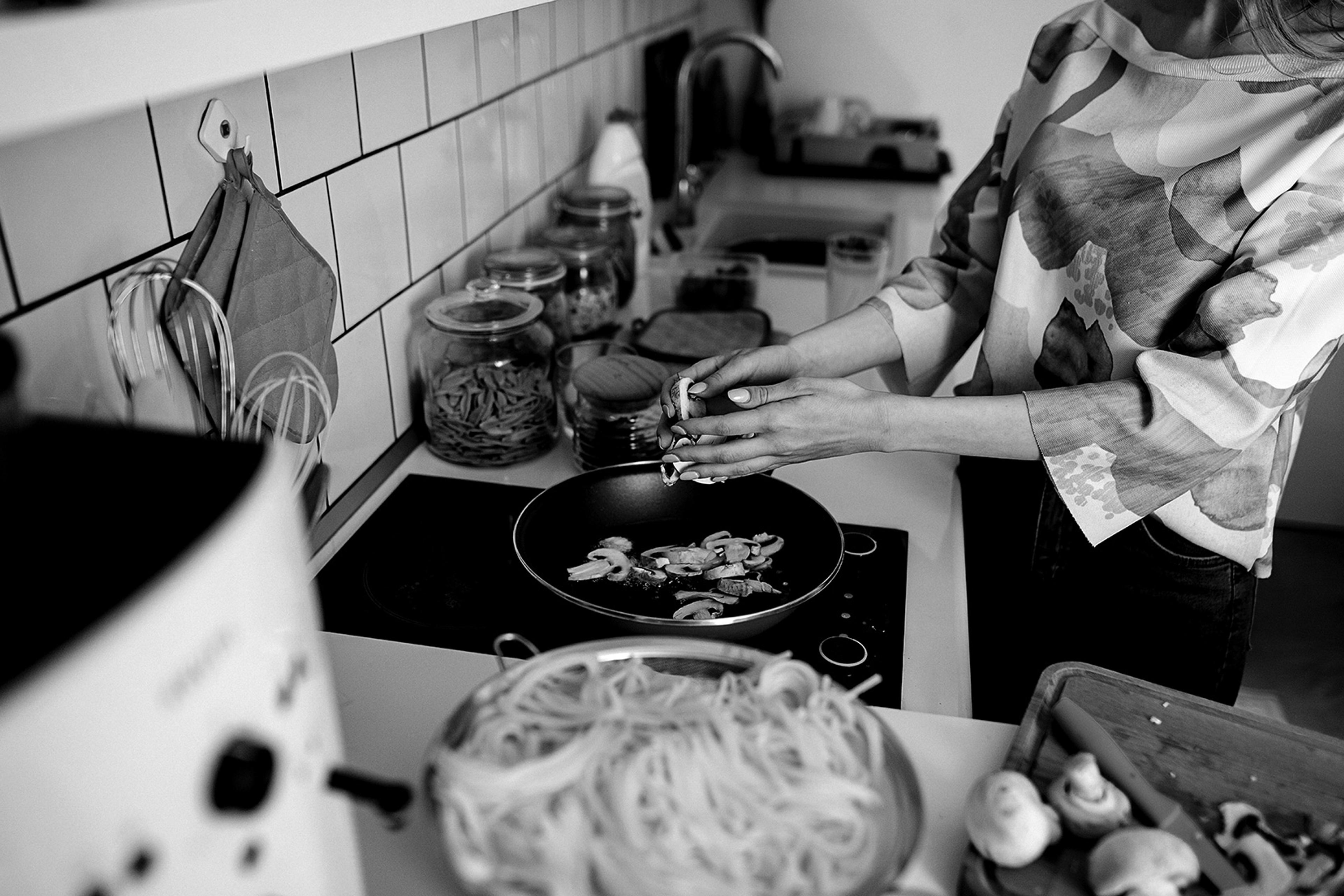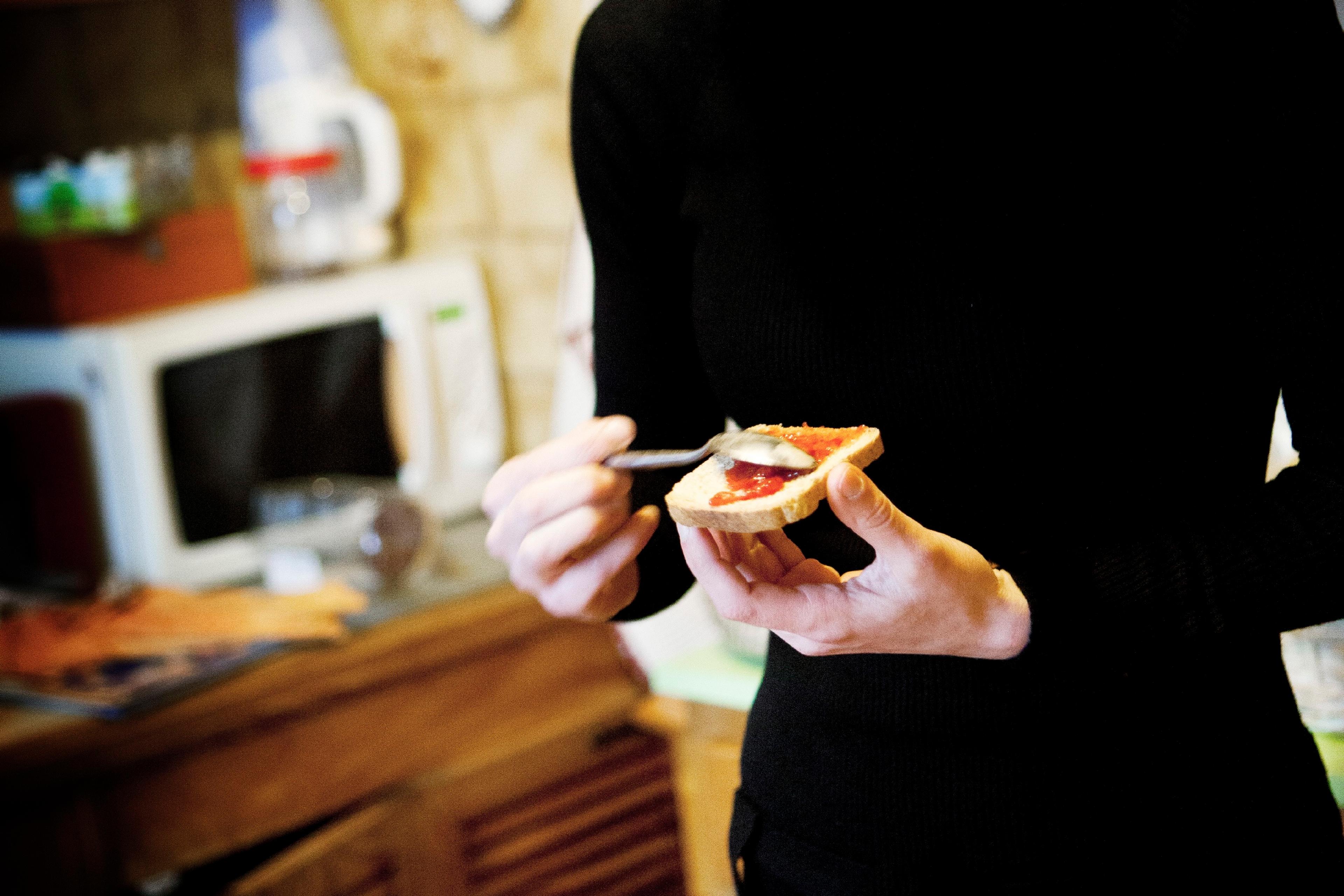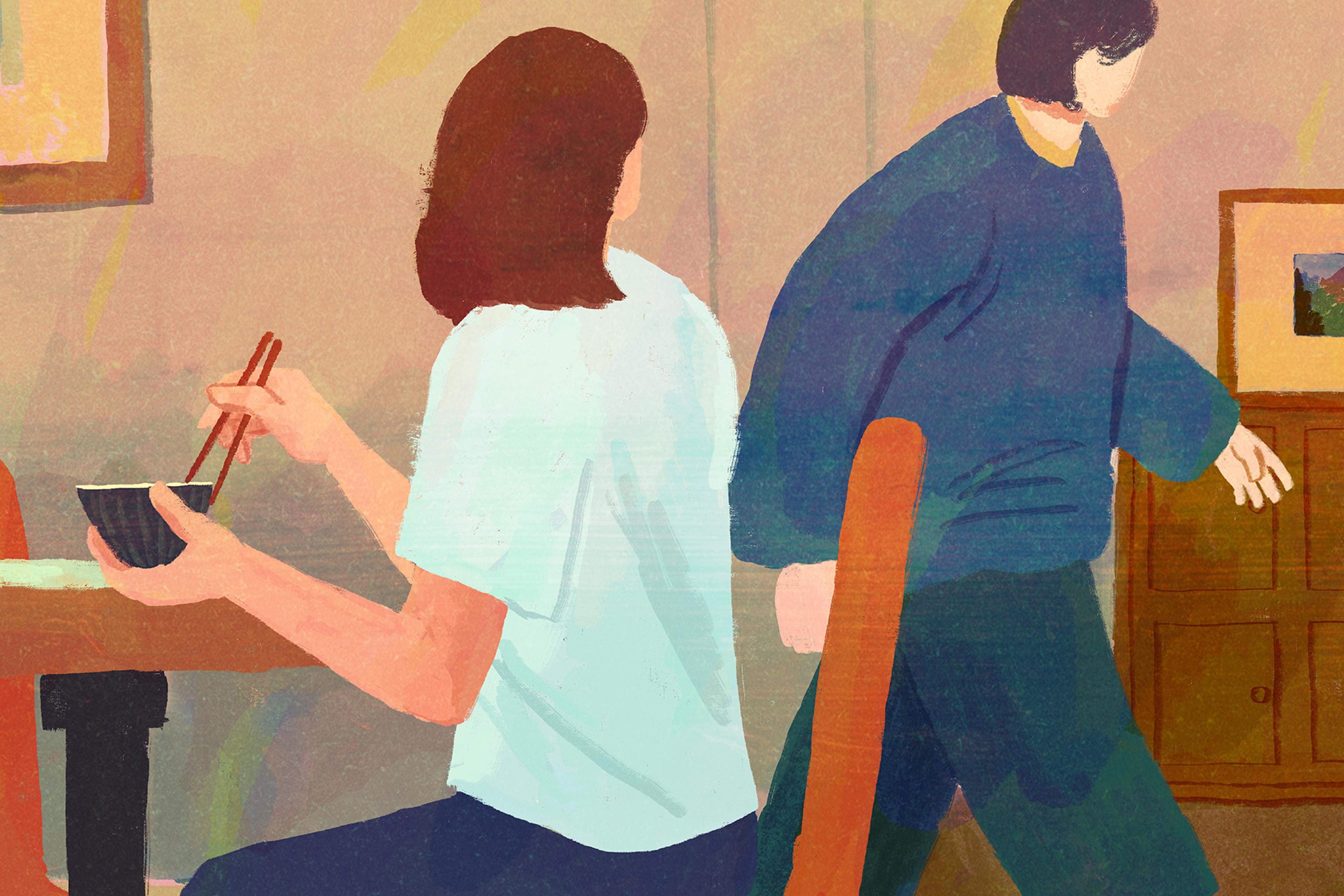‘I had completely lost the ability to trust myself and my body,’ a young woman recently told me, reflecting on her difficult relationship with food and eating. She had spent so much of her adolescence trying to avoid eating certain foods, and to avoid eating ‘too much’ of any food, that she had become disconnected from her intuitive sense of what or when she should eat.
Although her experience was more severe than some people’s – the long-term avoidance of so many foods had led to an eating disorder and a challenging recovery – many of us are, much like this young woman, unsure about how to best nourish ourselves. We all too often avoid food, or end up eating to soothe negative emotions. This is among the many reasons people turn to trendy diets; a prescription for how to eat (whether it’s cutting out carbs, eliminating sugar, or eating only the ‘right’ kinds of grains) can seem to make our lives simpler. In the long term, however, restrictive dieting is not the answer.
It’s not that food choices don’t matter: you likely already appreciate that the nutritional virtues of kale – vitamins A, B6, C, K, and calcium to name a few – are superior to those of doughnuts. But as a psychologist who has studied people’s eating behaviours for more than 25 years, I am more interested in the relationship people have with food than the nutrients in any given bite.
What exactly do I mean by the relationship that people have with food? I mean: how do you approach and experience food? A healthy relationship with food allows for the enjoyment of eating, attention to physiological cues concerning hunger and satiety (eg, a growling or full stomach, light-headedness due to hunger), consumption of a variety of foods, and flexible consideration of the different benefits foods offer, whether those benefits be nutritional or experiential. Unfortunately, many people do not have a healthy relationship with food, instead finding themselves entrenched in a culture of dieting that insists that so many foods should be avoided completely. Among researchers, this chronic avoidance of food is often referred to as restrained eating.
Restrained eating is a conceptual sibling of dieting. Namely, it involves reducing the amount or certain types of food consumed (whether through a planned diet or otherwise) with the goal of losing or maintaining a certain weight. Occasionally, these behaviours are motivated by health or medical providers’ advice, but most often they are motivated by appearance concerns. Many people live in fat-phobic societies that value thinness and equate self-control around food with virtue. Thus, it is no surprise that many of us would like to lose weight and seek to do so by manipulating our food intake. Restrained eating is rarely effective in the long term and is predictive of symptoms of eating disorders. It can be a slippery slope from cutting back on how much or what types of foods one eats to more serious maladaptive eating patterns.
When someone restricts their eating, they usually experience an unpleasant sense of deprivation. So food restriction tends to create a hyperfocus on food, and restrained eating is often associated with emotional eating. What happens when you feel like you can’t have your favourite potato chips? When you relent and decide to indulge, you probably can’t get them into your mouth fast enough. In this scenario, you cease to be affected by your senses of hunger and satiety – your desire to have the forbidden is central. This rarely leads to a satisfactory eating experience, but often results in guilt, shame and remorse. Researchers who study this phenomenon sometimes refer to it as the ‘what the hell effect’, because someone who has been restraining their eating and then has a few chips is all too likely to think ‘Oh, what the hell!’ and proceed through the entire bag.
Emotional, out-of-control eating experiences lead many to feel the need to exert control or restrain themselves around food as a sort of penance or punishment. The result can be a cycle that repeats itself over and over, where an individual bounces back and forth between restrained and emotional eating.
Of course, it is not maladaptive to try to exert some self-control around food at times or to have an emotional eating experience when happy, tired, sad or over-hungry. What is ideally avoided is the sense of deprivation that accompanies restraint and the uncontrolled emotional eating that often follows. Restrained and emotional eating are habitual patterns of behaviour (also called eating styles) that have the potential to be problematic. If a person exhibits restrained or emotional eating styles often or most of the time, this is likely indicative of disordered eating.
A more psychologically and physically healthy style of eating, research suggests, is intuitive eating. Intuitive eating is what most of us are born doing: infants cry when they are hungry and stop eating when they are full. Driven by physiological signals, infants tend to eat in accordance with their needs. At some point during childhood, familial and sociocultural food norms interfere with the ability to attend so completely to our sense of hunger and satiety. Instead, people start to eat before school or work so that they don’t get hungry later. Or they eat at other socially sanctioned opportunities and eat certain types of foods for certain meals. They might engage in diets or meal plans for the sake of health or in the hopes of weight loss, and often start to discount feelings of hunger or fullness.
Intuitive eating hearkens back to those early-life experiences of eating when there was more of a focus on physical needs and eating to satiation. The objective is not to eat potato chips for three meals a day because that is what you’d most like to do, but to allow yourself permission to eat potato chips. Typically, once ‘forbidden fruit’ such as these are viewed as ‘allowed’, they become less appealing and don’t have the same power as they once did. When you engage in intuitive eating, you don’t necessarily stop eating before school or work (because you will get hungry en route if you don’t), but you do attend to your physical needs more thoughtfully – maybe eating a small breakfast if you aren’t usually very hungry when you wake up, and bringing a snack for later in the morning. Most often, for people used to engaging in habitual restraint or emotional eating, there is a period of adjustment as they transition from following food rules to following their bodies’ lead. In time, food becomes more enjoyable and eating less anxiety-inducing.
Intuitive eating is established on a foundation of self-trust, whereas diets consist of rules
In recent research that examined restrained, emotional and intuitive eating among more than 6,000 people living in eight countries, my collaborators and I found that people who tended to engage in restrained eating were also more likely to eat emotionally – but that both eating styles were unlikely among intuitive eaters. (We assessed intuitive eating with a survey that asks people how much they agree with items such as ‘I trust my body to tell me when to eat’ and ‘If I am craving a certain food, I allow myself to have it.’) Perhaps most important, we found that intuitive eaters tended to experience greater body satisfaction, higher self-esteem and lower body weights than those who were not intuitive eaters. These findings hint at the possibility that intuitive eating is not only conducive to adaptive health behaviours, but that it is also consistent with better mental health in general.
Although it is possible that intuitive eating could result in weight loss, that is not the goal of intuitive eating – it’s to allow for a healthy relationship with food to blossom. It is essentially the opposite of restrained eating or dieting in that intuitive eating is established on a foundation of self-trust, whereas diets consist of rules that govern our appetites. In other words, an intuitive eater appreciates that their nutritional and psychological needs are unique and seeks to honour those needs, rather than following unsubstantiated diet trends or an exact diet plan. (Exceptions would include someone working with a registered dietitian, who can help them follow principles of intuitive eating while also creating an eating plan that’s unique to them, or an individual in eating-disorder recovery, who may need to consume certain foods in certain amounts to restore their health.)
If you are interested in becoming a more intuitive eater, you may want to seek out a book on the subject, or a psychologist or registered dietitian who has expertise in intuitive eating. You could also get started on your own by adopting some of the principles of intuitive eating articulated by the nutrition experts Evelyn Tribole and Elyse Resch. For example, you could try to ‘honour your hunger’ by focusing some attention on the times when you are most likely to feel hungry during the day. How can you adapt your eating habits so that you are not hungry? You also could try to ‘discover the satisfaction factor’ and work on savouring and enjoying what you eat. These two principles alone could prompt you to reconsider your grocery list so that you’ll have snacks and other foods on hand when you feel hungry – ones that you will be able to savour.
It’s important to note that there is a lot of flexibility inherent in intuitive eating. As I’ve already mentioned, eating rules often backfire for psychological reasons, but also because our bodies are not perfectly calibrated machines – they have needs that vary somewhat from day to day. It’s understandable to want simple, clear rules that dictate which ways to eat are the best, or healthiest, or most likely to lead to weight loss. However, some days it may make sense to have some cake at lunchtime (It’s your birthday! You just got a new job! You just feel like it!) and some days you may want to eat only plain carbs for lunch (you’ve been sick; you need the energy for an athletic event; you have nothing else in your house).
Developing a healthy relationship with food is not necessarily easy. Family members, friends, media and even medical providers sometimes encourage habits that are antithetical to such a relationship. Intuitive eating implores us to get to know our bodies better and to trust ourselves. A healthier relationship with food means not only enjoying food more, but also worrying about food a lot less.








